- Home
- Joel Goldman
Final Judgment Page 21
Final Judgment Read online
Page 21
“Even if I wanted to, I wouldn’t know how to do it. Wayne always took care of the money.”
“Then bury it in your backyard and dig it up when I’m dead. Just promise me you’ll get it to my grandkids. You can take whatever you think is fair for your trouble, but I’ve got to move the money in the next couple of days. I’ve got a hundred grand hidden at home. The rest is in a safety deposit box under a phony name. The feds have me under twenty-four-hour surveillance. I can’t go near the money. You and Wayne are the only ones I could ever trust with something like this, and he’s dead. Will you at least think about it?” His question hung unanswered. “Sylvia? Are you there?”
“I’m here.”
“Well?”
“I’ve got some sick days saved up. I’ll think about it,” she said and hung up.
FIFTY-THREE
“Where’s the money?” Fish asked.
Kelly lifted an aluminum briefcase onto the kitchen counter, snapped open the locks, and raised the lid, revealing neatly wrapped bundles of hundred-dollar bills packed tightly together like tiles. Fish elbowed Samuelson out of the way to get a closer look.
“Old money?”
“Heavily circulated, nonsequential serial numbers,” Kelly said.
“You can trace that?”
“Completely. Don’t get too ambitious. You’ve got enough problems as it is.”
Fish laughed. “You don’t have to worry about me, Miss Holt. You’ve already put me out of business. It’s my former partner who’s got ambitions.”
“You think Sylvia will call back?” Samuelson asked.
“She’ll call, and when she does, you better have the rest of the money,” Fish answered.
“Hold on,” Samuelson said. “It was hard enough to get the hundred thousand. You don’t really think we’re going to come up with another million and stick it in a safety deposit box for you to play with?”
“Actually, that would be another one million sixty-seven thousand. I told you that nobody believes exact numbers. And that’s what you’ll do if you want this to work. What’s the combination?” Fish asked, snapping the briefcase closed and thumbing the numbers on the lock.
“You aren’t serious?” Kelly said.
“I have too much respect for money to joke about it. I told Sylvia that I had the hundred at home. How’s it going to look if she shows up here and I don’t have it?”
“You think she’d do that?” Samuelson asked.
Fish rolled his eyes at Mason and let out an exasperated sigh. “Amateurs,” he muttered. “What do you think she’s going to do? Ask me to mail it to her?”
“There’s no way we’re leaving this money here with you,” Kelly said.
“Out of the question,” Samuelson added.
Fish picked up the phone and began dialing. Sylvia’s number flashed across the laptop screen. Samuelson snatched the phone from his hand, ending the call before Sylvia could answer.
“What in the hell are you doing?” Kelly demanded.
“I’m calling Sylvia to tell her I threw the money out with the trash and she can forget I ever called her.”
“You do that and our deal is off!” Samuelson said. “You’ll die in prison.”
“Fine,” Fish said, his hands clasped beneath his belly. “So I’ll die in prison. You think this house isn’t a prison? No wife, no kids, no grandkids. At least in prison I’ll have someone to talk to. Now get out of my house!”
Samuelson looked at Mason, pleading. “Talk to your client.”
Mason shook his head. “You put him up to this. If he can’t deliver the money to her, the deal blows up. There’s no way for him to know if Sylvia is going to call back, show up, or send someone in her place. You can park someone here to babysit him and the money but that could complicate things if someone knocks at the door.”
“What are we supposed to do?” Kelly asked. “Trust him? He’s a crook!”
“Then get a receipt for the money or pick someone else,” Mason said.
Kelly motioned Samuelson into the living room while the technician gathered his equipment. Fish poured himself a cup of coffee and read the paper. Mason stared out the kitchen window, trading glances with a blue jay bobbing on a sapling’s narrow branch.
“Okay,” Samuelson said when they came back five minutes later. “We’re going to install surveillance cameras and microphones throughout the house. That money walks out of here, we’re going to know about it.”
“Isn’t it supposed to walk out of here?” Mason asked.
“Well, yeah,” Samuelson managed. “But not without us knowing it.”
Fish waved a hand at Samuelson. “First I’m a snitch and now I’m a movie star. I don’t want anybody seeing me naked.”
“We can’t make any room in the house off-limits,” Kelly said. “I’m sorry.”
“Tell you what,” Mason said. “Keep a camera on the briefcase at all times. That’s all you need to worry about. The man is entitled to some privacy.”
Kelly looked at Samuelson, nodding. “Okay. We’ll wire the house today,” Samuelson said.
“Good. Now give me the combination,” Fish said. Samuelson scratched the numbers on a piece of paper, handing it to Fish, who glanced at them and handed the paper back. “This is just seed money. Sylvia and Wayne won’t take my word about the rest of the money. They’ll want to see all of it before they take any chances.”
“How are you going to pull that off?” Samuelson asked. “You already told her you can’t go near the money.”
“I can’t, but he can,” Fish said, pointing to Mason. “I’m going to give him my power of attorney and the key to my safety deposit box.”
Three copper canisters labeled Flour, Sugar, and Salt sat on the kitchen counter against the wall. Fish opened one that said Flour, reached in, and pulled out a plastic bag caked in white powder. He unsealed the bag and removed a key, handing it to Mason.
“It’s for box number 4722 at the U.S. Bank branch at Fifty-first and Main. I’ve had it for years. It’s under the name of Myron Wenneck.”
“I can’t believe we didn’t find that key when we searched your house,” Kelly said. “Or that the police didn’t find it when they did their search.”
“Who’s going to look in the flour?” Fish asked. “You’re policemen, not cooks.”
“You’ve got a safety deposit box under a false name?” Samuelson asked. “That’s against federal bank regulations.”
Fish gave him a sheepish grin. “What are you going to do? Arrest me again? I can’t open a new box. They’ll see the signature card when Lou takes them into the vault to show them the money. If the box doesn’t have a history, we don’t have a story.”
“I don’t want you involved,” Kelly told Mason. “I’ll get an agent about your age and build. Sylvia won’t know the difference.”
“I’ve been on TV as much as Avery has. She’ll know it isn’t me before my double gives her one of my business cards. I’ve got to do it or it falls apart.”
“There has to be another way,” Kelly said, looking hard at Mason. “You’ll end up a witness in the case against Al Webb or Wayne McBride—whichever name we charge him under. Once you’re on the stand, who knows where the questions will go.”
Kelly’s comment and the piercing look she gave him were packed with warning, as if she somehow knew which questions he didn’t want to answer. He glanced at Fish, who was dissecting Kelly’s words and the mask she was wearing. Fish turned to him with narrowed eyes and a thin-lipped smile that said, Watch your step, boytchik.
Mason nodded. “I’ve got an alternative. My legal assistant, Mickey Shanahan, just got back in town. Fish can vouch for him and he can go to the bank.”
“Swell, but what about the money?” Samuelson asked again. “My boss is going to think I’m out of my mind.”
“You’re the government,” Fish said. “Print the money.”
Mason looked at his watch. He was supposed to be at Vince Bongiovanni’s off
ice to swap information about Ed Fiori and Charles Rockley.
“I’ve got to get going. Let me know when you hear from Sylvia.”
FIFTY-FOUR
Kelly said, “I’ll walk out with you.”
The sky was half clouds, half sun; the air held a tentative chill, ready to give way if the sun won the battle with the clouds or hold on if the contest went the other way. The breeze started and stopped as if it couldn’t make up its mind either.
They stood on the front porch. Kelly stuffed her hands under her arms to keep them warm.
“I think your client may have gotten the wrong idea.”
“Which wrong idea? The one about the government helping him out of a jam?”
Kelly smiled. “Not that one. I think he’s trying to figure out a way to steal our money.”
Mason spun toward her. “Between the federal and state charges, the man could spend the rest of his life in prison. Despite what he says, he’s got an ex-wife, kids, and grandkids he wants to reconnect with when this is all over. Besides, he’s not that stupid. You’re going to have cameras and microphones everywhere except up his ass, plus you’ll probably evict the neighbors across the street so you can spy on him in person.”
“We don’t evict them. We rent from them. And, it’s not about being stupid. It’s about habits—bad ones. People don’t change. He’s a con man. We just waved a boatload of money under his nose. He wasn’t kidding when he said he has too much respect for money to joke about it. Only it isn’t just respect, it’s greed and the charge he gets out of running a con. He can’t help himself. Plus, he wants to get even with his ex-partner.”
“Those are exactly the reasons you wanted his help. He’s good at what he does and he’s highly motivated. I’ll bet that’s a quote right out of the FBI recruiting manual,” Mason said, jabbing a finger at her.
“First page,” Kelly said, slapping his hand away. She looked up and down the street, Mason following her eyes.
“All clear?”
“Habit,” she said. “I like to see trouble before it gets here.”
Kelly stared at him again, this time her face open. She was ready to listen if he was ready to talk. He wasn’t, not until he understood her agenda.
“If you’re sending me a message, I need a translator,” Mason said.
Kelly did a slow circuit of the porch, poking her head around the corners of the house, coming back to Mason, who was standing at the top of the steps.
“Your client may be a con man, but I don’t think he killed Charles Rockley.”
“Did you tell that to the cops?”
“Detective Cates blew me off; made some noise that the Bureau should stick to catching terrorists and leave the street crime to the cops.”
“I’ve met Cates. He’s a wonderful conversationalist.”
“Typical macho cop. Confuses his dick with his gun and probably can’t fire either one. He likes Fish for the murder because they don’t have a better choice. He doesn’t care that there’s no connection between Fish and Rockley. Or that Fish is too old to have taken Rockley down, let alone cut off his head and hands. Rockley was killed by a professional or a psychopath and Fish doesn’t qualify for either, but Cates sees it the way he wants it to be.”
“Rockley was in the FBI’s database, which means he either had a record or he was a spook. I talked to his prior employers and they couldn’t wait to have him back. That doesn’t fit.”
Kelly furrowed her brow. “Where did you get his employment history?”
Mason told her part of the truth. “From Galaxy’s lawyer, Lari Prillman. Tell me who Rockley really was.”
Kelly folded her arms, dipped her chin to her chest, and did a slow half turn in place. Straightening, she clasped her hands behind her back and answered him.
“His real name was Tommy Corcoran. When he was in his twenties, he was a grifter—ran small-time cons. He had a mean side and did time for sexual assault. That’s how he got into our database. After he got out, he picked up a new identity and stayed off our radar until someone handed him his head.”
“Wait a minute. You mean to tell me that Wayne McBride is masquerading as Al Webb, skimming money from Galaxy Casino, and Tommy Corcoran, a.k.a. Charles Rockley, is also working at Galaxy? And the FBI can’t connect those dots?”
“Believe me, we tried. McBride worked the Midwest. Corcoran operated strictly in New Jersey. There’s nothing to connect them until they show up in Kansas City. Then there’s Johnny Keegan.”
“What do you have on Keegan?”
“Just what I got from Detective Griswold. Why was Keegan holding on to your name and phone number when he was killed?
“I don’t know. I’ve never heard of him,” Mason said, holding both hands up. “The guy was in enough trouble to get killed; it’s no surprise he needed a lawyer. Don’t tell me he had a secret past too.”
“Not that we’ve found.”
“Which gets us back to my client being innocent. Griswold seems like a reasonable guy. Maybe you can convince him not to charge Fish?”
“Are you certain you want me to do that?”
Mason took a step back. “Why wouldn’t I?”
Kelly dropped her arms to her sides, her hands on her hips. “Because Griswold might start asking himself the same questions I’ve been asking myself. Like why was Blues checking out Rockley’s apartment before I told you that Rockley was the dead man? And why were you and Blues talking to Mark Hill and taking pictures down in Fairfax? And why were you talking to Vince Bongiovanni about Carol Hill’s sexual harassment case? And why do you want me to investigate another FBI agent?”
Mason saw no point in telling her that Griswold was already asking him enough questions to make his shoes tight. “Was Brewer the leak?”
“I’ll deal with Brewer. Answer my questions.”
“It doesn’t work that way. I answer yours, you answer mine.”
Kelly crossed her arms. Mason smiled. She tapped her foot. He smiled again. “Fine,” she said, not meaning it. “You first.”
“Fair enough. Here’s what I know. Carol Hill sued Rockley for sexual harassment. Somebody killed Rockley and hid his body in the trunk of my client’s car on the same day we were supposed to make a deal with Pete Samuelson. Your pal Brewer breaks the news to Samuelson about the dead body just as we’re about to ink the plea bargain. Samuelson shits his pants and says no deal. Samuelson and his boss change their mind and invite us back last Friday to make a new deal. Suddenly, Brewer is out and you’re in.”
“I don’t need the history lesson.”
“Wrong. History is written by the winners and this case is still a jump ball, so pay attention. Friday morning you tell me about Rockley. Friday night, Blues and I find Carol Hill’s husband, Mark, in that bar in Fairfax. He tells us that his wife was having an affair with Keegan. Mark leaves and runs his pickup into a car parked across the street. Two guys are in the car; one jumps out and clocks poor Mark. The other guy gets on the phone and Brewer shows up two minutes later. We head for home and you nearly rear-end us.”
“Tell me, Lou. Did you think if you said it fast enough and cute enough, I wouldn’t realize you hadn’t answered any of my questions? I’ve got a picture of Blues outside Rockley’s apartment taken on Thursday and I don’t think he was selling encyclopedias door to door. I didn’t tell you about Rockley until Friday morning. Eight hours later, you had tracked down Mark Hill. How did you manage that?”
“I’m good at what I do.”
“You’re not that good. Carol Hill’s lawsuit is a private arbitration, not a matter of public record. You couldn’t have known about it unless someone told you and I didn’t. Vince Bongiovanni didn’t tell you because you wouldn’t have known that he represented Carol until after you found out about her case. And that’s not the kind of information big companies like Galaxy give to strangers, especially lawyers.”
“It doesn’t matter how I knew.”
“It does to me if it means you’r
e connected to all of this by something other than Avery Fish.”
“I don’t have any connection to Carol Hill, Charles Rockley, Johnny Keegan, or the Galaxy Casino.”
“But you do have a connection to the Dream Casino. That’s what the Galaxy was called when Ed Fiori owned it. You didn’t represent him either. But, you were there when he died.”
Mason was dancing as fast as he could, but Kelly was a step ahead.
“Ed Fiori is ancient history.”
“There is no such thing as ancient history. The past is always waiting there to bite us in the ass. I did some digging after we found out about the sexual harassment case. Fiori was Vince Bongiovanni’s and Carol Hill’s uncle. Galaxy bought the casino from Fiori’s estate. Bongiovanni was the executor. He accused Galaxy of fraud and sued to set the sale aside, only the case was thrown out. Maybe the two of them set Rockley up so they could get even with Galaxy.”
“None of which has anything to do with me.”
“Then why won’t you answer my questions?”
“I did. You just didn’t like the answers. It’s your turn. Was Brewer the leak?”
Kelly blew her exasperation away in a fog of frosted breath. “You are beyond salvage. You know that? Beyond salvage.”
“So sell me for scrap, but tell me about Brewer first.”
She took a smaller breath that calmed her. “I don’t know. Proving that Brewer was the leak is almost impossible unless Rachel Firestone has him on tape and agrees to give it up.”
“Rachel will never give up her sources.”
“Then I’ll probably never know if Brewer was the leak.”
“Which makes us even. You don’t like my answers to your questions and I don’t like your answers to mine.”
“You always get in over your head. You can’t help it any more than Avery Fish can resist trying to steal the government’s money. I can’t keep my eye on both of you. Talk to me before it’s too late,” she said.
Mason tried staring her down, but there was more steel in her eyes than in his. He would have settled for a smart-ass comeback, but he didn’t have one. All he had was a twisted gut he was about to choke on. He walked away without answering, not stopping until he reached his car. He opened the driver’s door, lingering for a moment, looking back at her. It was still early, the street quiet. He ducked behind the wheel, fired the ignition, and drove away wondering if it already was too late.

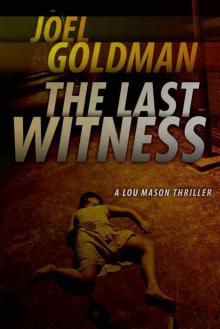 The last witness lm-2
The last witness lm-2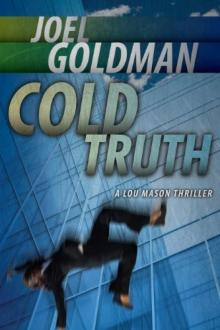 Cold Truth
Cold Truth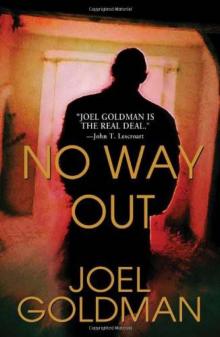 No Way Out (2010)
No Way Out (2010)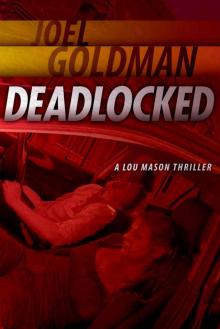 Deadlocked (Lou Mason Thrillers)
Deadlocked (Lou Mason Thrillers)![[Lou Mason 01.0] Motion to Kill Read online](http://i1.bookreadfree.com/i1/03/24/lou_mason_01_0_motion_to_kill_preview.jpg) [Lou Mason 01.0] Motion to Kill
[Lou Mason 01.0] Motion to Kill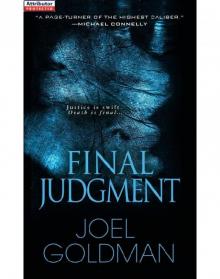 Final Judgment
Final Judgment Stone Cold
Stone Cold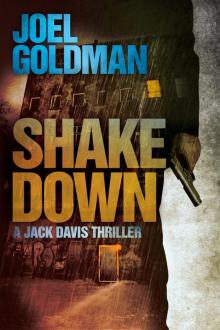 Shakedown
Shakedown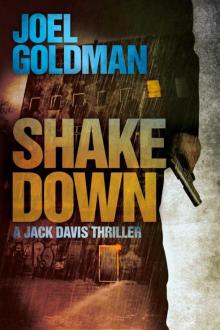 Shakedown jd-1
Shakedown jd-1 All Gone
All Gone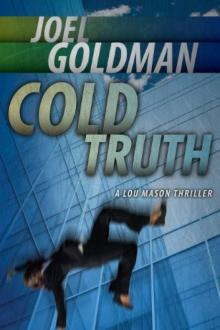 Cold truth lm-3
Cold truth lm-3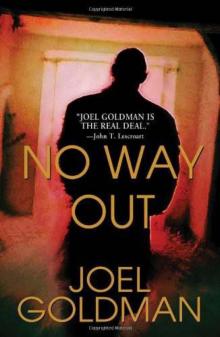 No way out jd-2
No way out jd-2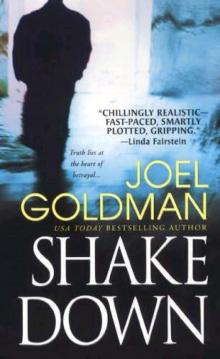 Jack Davis Mystery - 01 - Shakedown
Jack Davis Mystery - 01 - Shakedown Stone Cold as-1
Stone Cold as-1 Final judgment lm-5
Final judgment lm-5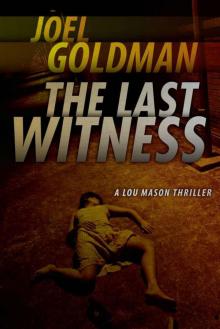 Lou Mason Mystery - 02 - The Last Witness
Lou Mason Mystery - 02 - The Last Witness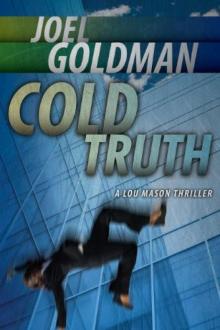 Lou Mason Mystery 03-Cold Truth
Lou Mason Mystery 03-Cold Truth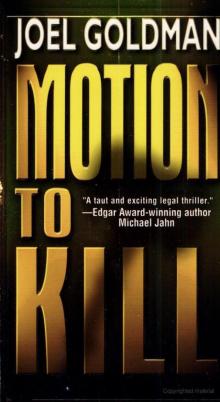 Motion to Kill
Motion to Kill Die, Lover, Die!
Die, Lover, Die!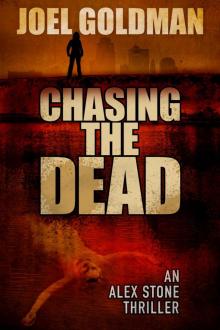 Chasing The Dead (An Alex Stone Thriller)
Chasing The Dead (An Alex Stone Thriller)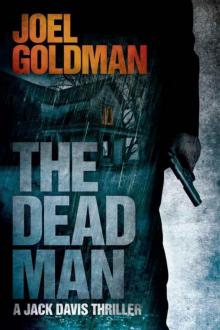 The Dead Man
The Dead Man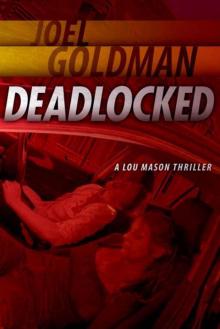 Deadlocked lm-4
Deadlocked lm-4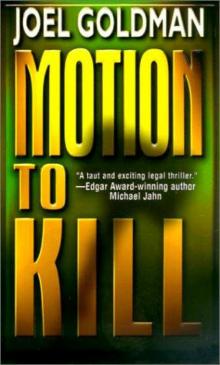 Lou Mason Mystery - 01 - Motion to Kill
Lou Mason Mystery - 01 - Motion to Kill Die, lover, die
Die, lover, die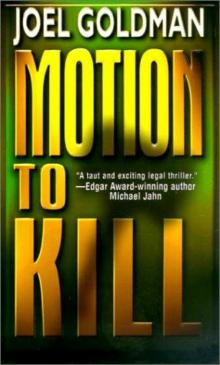 Motion to Kill lm-1
Motion to Kill lm-1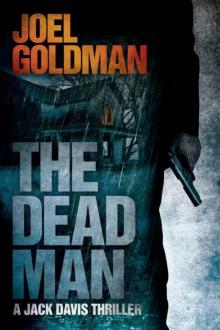 The Dead Man jd-3
The Dead Man jd-3